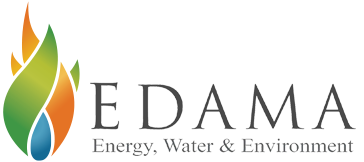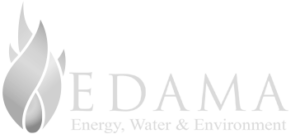Under the patronage of H.E. Hala Zawati, the Minister of Energy and Mineral Resources, EDAMA Association for Energy, Water and Environment, Friedrich-Ebert-Stiftung and Solar Power Europe collaborated to issue the “Decentralized solar in Jordan streamlining administrative procedures to maximize socio-economic benefits”. This paper was issued to improve administrative procedures for small- and medium-solar projects, also known as decentralized solar systems.
The recommendation paper was issued in light of the Jordanian Government’s announcement in the beginning of the current year (2019) to suspend the applications for investments in renewable energy projects as a temporary decision until the issuance of the national strategy for the energy sector and the comprehensive plan of the National Electric Power Company (NEPCO). For this purpose, the Cabinet has formed a National Committee to advise a roadmap to ensure sustainability in the electricity sector.
The Ministry of Energy and Mineral Resources (MEMR) represented by H.E. Hala Zawati showed interest in EDAMA’s advisory on improving administrative procedures for obtaining renewable energy project approvals.
In response, EDAMA, and in partnership with Solar Power Europe and Friedrich-Ebert-Stiftung, and in parallel with celebrations of 60 years of Jordanian-German cooperation, had concluded this report which covers the socio-economic benefits of decentralized solar learned from international experience with projections in Jordan. The other part looks at how to improve administrative procedures for decentralized renewable energy projects in Jordan.
The report reviewed the existing Energy and Mineral Resources Committee (EMRC) guidelines for installing renewable energy projects and collected feedback from installation companies, donors and final consumers on the procedures conducted at the three main electricity distribution companies. Based on their feedback, a list of specific and general recommendations was formulated in a report.
The main recommendations listed in this report was to ensure implementing a one-stop-shop online application system and a more transparent application-related approval process; additionally, implementing concerned parties, granted capacities and open slots on the grid.
The simplification of the application procedure is for systems that are less than 10kW and systems that don’t export energy to the grid. Furthermore, the application procedure includes all the procedures, concerned parties and costs to the applicant within the EMRC guidelines. Finally, the report aims to unify the practical implementation and interpretation of legislative stipulations with clear and reasonable deadlines, as well as ensure proper coordination with relevant entities while reducing the number of permits needed.

